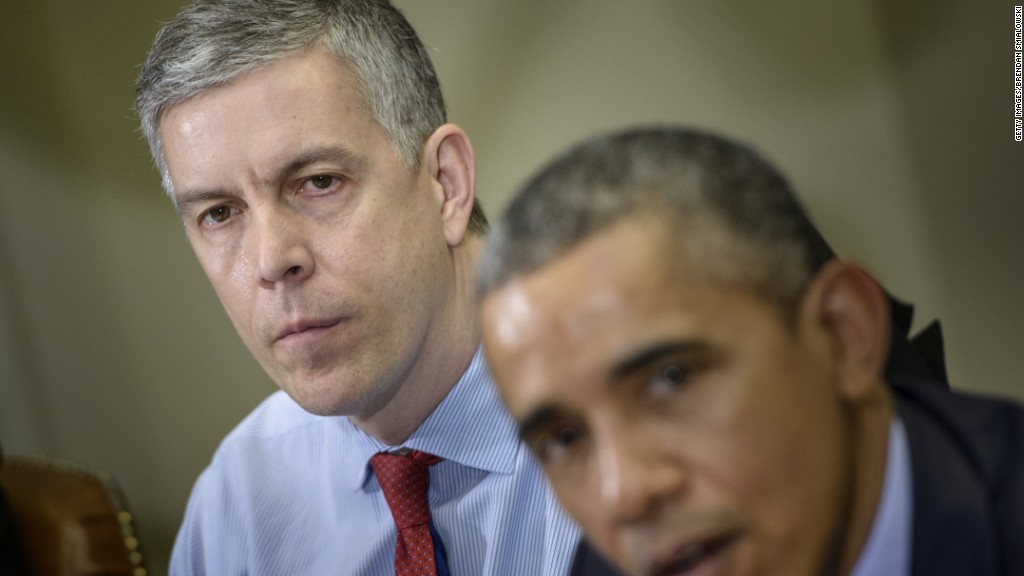
The University of Phoenix lost 50,500 students last year, and now its parent company is selling.
Apollo Education Group (APOL) will sell itself to a group of investors, which will take the company private. A former deputy secretary of the Department of Education, Tony Miller, will take the helm at a tough time. Its shares plunged 75% in 2015.
Under President Obama, the federal government has been trying to crack down on the way the University of Phoenix and other for-profit schools recruits students.
"For too long and too often, the private education industry has been characterized by inadequate student outcomes, overly aggressive marketing practices, and poor compliance. This doesn't need to be the case," Miller said in a statement.
He is a partner at Vistria Group, one of the investment firms acquiring the company.
Related: DeVry University sued for 'deception'
At the University of Phoenix, new student enrollment was down 38% in its last quarter of 2015. The college brought in $134 million less from tuition and fees compared to the same quarter the year before, according to a recent filing.
In July, the Federal Trade Commission announced that it was investigating the University of Phoenix to determine whether or not its recruiters deceive potential students about its degree programs and job placement rates. The investigation is ongoing.
The school has also been criticized for aggressively recruiting veterans. The Department of Defense banned the University of Phoenix from recruiting on military bases after finding that it did not get proper approval to hold events there. The ban was lifted after the agency completed a review, which took about three months.
Related: More Corinthian students will get debt relief
The University of Phoenix is not the only for-profit school that has faced tougher scrutiny. Corinthian Colleges closed last year after being fined $30 million for overstating the job placement rates of graduates. And just last month, DeVry Univeristy was sued by the FTC over the same issue.
Many former students claim that these schools misled them about how much it would cost to attend and how likely it would be to get a job in their field after finishing. Saddled with debt, thousands are asking the government to forgive their federal loans.
It's difficult for these students to prove they were misled. The government has set up a fast-track process to debt relief, but it's only for those who were attending a Corinthian College when it closed.
A stronger economy may be one of the reasons enrollment is down at for-profit schools, which attract adults who are returning to school as a way to get a better job. And some non-profit colleges have started offering online programs, making the space more competitive.
New federal regulations may be making it harder for the schools to enroll more students as well. One new rule, which aims to hold colleges responsible for preparing their students for "gainful employment," allows federal money to be withheld if graduates have too much debt compared to their income. In a recent filing, Apollo Education Group said it expected some of its University of Phoenix programs to be impacted by the new rule, and already stopped enrolling new students for those programs.
